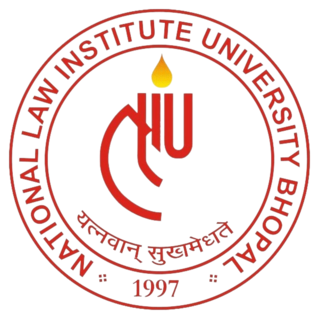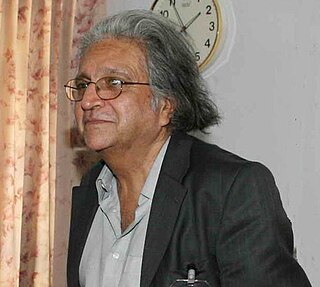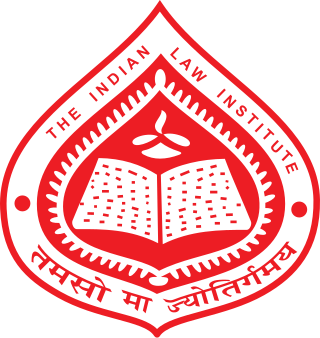External links
- Official website
- Journal page at society website
| Discipline | Law |
|---|---|
| Language | English |
| Publication details | |
| Publisher | Springer Science+Business Media on behalf of the Indian Society of International Law. (India) |
| Frequency | Quarterly |
| ISO 4 | Find out here |
The Indian Journal of International Law is a quarterly law review published by Springer Science+Business Media on behalf of the Indian Society of International Law. It was established in 1960 and the editor-in-chief is B. S. Chimni (Jawaharlal Nehru University).

Dharma is a key concept with multiple meanings in the Indian religions, among others. Although no single-word translation exists for dharma in English, the term is commonly understood as referring to behaviours that are in harmony with the "order and custom" that sustain life; "virtue", or "religious and moral duties".

Arachnology is the scientific study of arachnids, which comprise spiders and related invertebrates such as scorpions, pseudoscorpions, and harvestmen. Those who study spiders and other arachnids are arachnologists. More narrowly, the study of spiders alone is known as araneology.

National Law School of India University (NLSIU), or simply National Law School(NLS), is a public law school and a National Law University located in Bangalore, considered by rankings to be the best law school in India.
Bride burning is a form of domestic violence practiced in countries located on or around the Indian subcontinent. A form of dowry death, bride-burning occurs when a woman is murdered by her husband or his family for her family's refusal to pay additional dowry. The wife is typically doused with kerosene, gasoline, or other flammable liquid, and set alight, leading to death by burning. Kerosene is often used as the cooking fuel for small petrol stoves, some of which are dangerous, so it allows the claim that the crime was an accident. It is most common in India and has been a major problem there since at least 1993.

The National Academy of Legal Studies and Research (NALSAR), is a public law school and a National Law University located in Shamirpet, Hyderabad, Telangana, India, and is considered as one of the best law schools in India.

National Law Institute University Bhopal is a public law school and a National Law University located in Bhopal, India. Established in 1997 by the State of Madhya Pradesh, it is the second law school established under the National Law School system. In 2022, it was ranked third among law colleges in India by India Today. The university launched its first academic program in 1998, with Indian jurist V.S. Rekhi as the Director. Recognized by the Bar Council of India, the university admits around 120 candidates each year through the Common Law Admission Test UG, for the B.A. LL.B (Hons.) Course and around 60 candidates for the B.Sc. LL.B. (Hons.) [Cyber Security] Course. The post-graduate courses offered at the university are the Masters of Law (LL.M.) degree and the Master of Cyber Law & Information Security (MCLIS) degree.
The Copyright Act 1957 as amended governs the subject of copyright law in India. The Act is applicable from 21 January 1958. The history of copyright law in India can be traced back to its colonial era under the British Empire. The Copyright Act 1957 was the first post-independence copyright legislation in India and the law has been amended six times since 1957. The most recent amendment was in the year 2012, through the Copyright (Amendment) Act 2012.

Symbiosis Law School (SLS) is a law school with campuses located in Pune, Noida, Hyderabad, and Nagpur in India. The law school in Pune was established in 1977 under the banner of Symbiosis Society, under the patronage of S. B. Mujumdar, President and Founder Director. It is registered under the Societies Registration Act, 1860, and the Bombay Public Trust, Act, 1950. Symbiosis Law School is a constituent college of the Symbiosis International University.

The National University of Advanced Legal Studies (NUALS) / NLU Kochi is a public law school and a National Law University located in Kochi, India. It is the first and only National Law University (NLU) in the State of Kerala and is one of the 26 NLUs in India. Admissions to the university are done on the basis of the Common Law Admission Test (CLAT) which is one among the Top 10 hardest entrance examinations of India.
The International Academy of Astronautics (IAA) is a Paris-based non-government association for the field of astronautics. It was founded in Stockholm, Sweden) on August 16, 1960, by Dr. Theodore von Kármán. It was recognised by the United Nations in 1996.

The Indian Academy of Sciences, Bangalore was founded by Indian Physicist and Nobel Laureate C. V. Raman, and was registered as a society on 27 April 1934. Inaugurated on 31 July 1934, it began with 65 founding fellows. The first general meeting of Fellows, held on the same day, elected Raman as president, and adopted the constitution of the Academy.

Prince Sri Nagendra Singh was an Indian lawyer and administrator who served as President of the International Court of Justice from 1985 to 1988. He was one of the four judges from India to have been Judges of the International Court of Justice in The Hague, the others being B. N. Rau (1952–1953), R. S. Pathak (1989–1991) the 18th Chief Justice of India, and Dalveer Bhandari (2012–), former Justice of the Supreme Court of India.

Upendra Baxi is a legal scholar, since 1996 professor of law in development at the University of Warwick, United Kingdom. He is presently a Research Professor of Law and Distinguished Scholar in Public Law and Jurisprudence at the Jindal Global Law School, OP Jindal Global University. He has been the vice-chancellor of University of Delhi (1990–1994), prior to which he held the position of professor of law at the same university for 23 years (1973–1996). He has also served as the vice-chancellor of the University of South Gujarat, Surat, India (1982–1985).

ILS Law College, or in its full name Indian Law Society's Law College, is a government-aided law school in Pune, India. It was established in 1924 and offers courses that include three-year and five-year degrees. ILS is located on Law College Road, Pune. The college was aided by the Ford Foundation.

The American Society of International Law (ASIL) is a professional association of international lawyers in the United States. The organization was founded in 1906. After the Lake Mohonk Conference on International Arbitration, some participants felt the need for a society devoted to international law separate from international arbitration. Participants in a meeting held on December 9, 1905, at the residence of Oscar S. Straus agreed to establish the ASIL.
Patibandla. Chandrasekhara Rao was an Indian jurist. He was from Veerullapadu Village Guntur-Krishna District region of coastal Andhra Pradesh of what was then called Madras Presidency.

The Indian Law Institute (ILI) is a Deemed University and socio-legal research institute, founded in 1956. Established in New Delhi, primarily with the objective of promoting and conducting legal research, education and training. The objectives of the Institute as laid down in its Memorandum of Association are to cultivate the science of law, to promote advanced studies and research in law so as to meet the social, economic and other needs of the Indian people, to promote systematization of law, to encourage and conduct investigations in legal and allied fields, to improve legal education, to impart instructions in law, and to publish studies, books, periodicals, etc.
The Indian Society of International Law (ISIL) is an institution for the teaching, research and promotion of International Law in India. It is located opposite the Supreme Court of India and next to the Indian Law Institute (ILI). The ISIL was established due to the efforts of V.K. Krishna Menon and was inaugurated by Prime Minister Jawahar Lal Nehru, who served as Patron of the society. It held its inaugural meeting on August 29, 1959. It set out as its objectives:
to foster nation-wide the study and development of international law; establish the Indian Institute of International Law; interpret through its forums and publications the application of international law chiefly as affecting India; encourage the comparative study of the application of intermational law in other states; promote research in international law; organize regional branches of the Society and maintain libraries; and for these purposes to co-operate with similar societies in India and in other countries.
The Faculty of Law, Aligarh Muslim University is the law school of the Aligarh Muslim University which has a history of over 100 years of teaching and writing law. Law classes were inaugurated by Justice Douglas Straight on December 29, 1891.